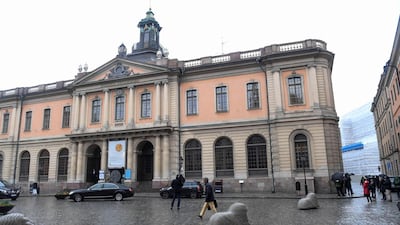In the United States, being awarded a Pulitzer Prize is a significant achievement but it wasn't always regarded that way. When Edith Wharton, the American novelist, was awarded the prize in 1921 for The Age of Innocence, the first woman ever to receive it, she was vexed to discover the prize was awarded for work that "presented the wholesome atmosphere of American life and the highest standard of American manners and manhood".
Wharton wrote to a friend that when she discovered she was being rewarded “for uplifting American morals”, she was full of despair; her work did not aim to uplift but to dissect social hypocrisies, delivered with clear-eyed deftness and a razor-sharp wit.
Wharton had mixed feelings about the Pulitzer, as did many of her contemporaries, although she was delighted with the prize money (which, as an inveterate gardener, she immediately spent on flowers and shrubs).
She became further disenchanted when she discovered that the committee had originally wanted to award the prize to Sinclair Lewis's Main Street but succumbed to pressure from the Pulitzer board of trustees, who decided that Lewis's book wasn't sufficiently wholesome.
We like to believe that when prizes are awarded, the committees making the decision are above board and not prone to politicking or intrigue but of course, human nature being what it is, that is probably hopelessly naive. As we have seen in the news recently, even the august Nobel Prize committees are not immune: the Nobel for Literature will not be awarded this year, as the Swedish academy tries to re-organise in the aftermath of a wide-ranging scandal involving allegations of sexual harassment and abuse (and, reportedly, subsequent attempts to cover up the accusations).
But really, I can hear some of you say, who cares about the Nobel Prize? The prize is only interesting when someone like Bob Dylan is selected as a laureate, so that we can all chime in with strong opinions about the decision. I challenge any of you to come up with a full list of the literary laureates from the past 10 years without cribbing from Google. And yet on the other hand, when the prize gets announced, I leaf through the writer’s books at the bookstore or the library and sometimes I fall in love with a writer whose work I might never otherwise have known – often someone whose work hadn’t previously been translated into a language I know, or whose work prior to winning “the big one” hasn’t been well distributed outside his or her home country.
_______________
Read more from Deborah Lindsay Williams:
The female adventurer who disproved Virginia Woolf's theory
We don’t need more women on pedestals; we need more men who know how to behave
The unsettling beauty of the Markazi exhibition and the questions it prompts
_______________
For a younger writer, a literary prize can help launch or solidify a career; it can also help spark interest in an entire area of literature, perhaps through providing funds for translation. Just last month, for example, the International Prize for Arabic Fiction (IPAF) crowned Ibrahim Nasrallah for his novel The Second War of the Dog. As a result of winning the award, the novel will be translated into English, which will, on the one hand, bring the book into wider readership. On the other, what do we do about the fact that English has become the de facto language of the so-called "wider audience"? What about the millions of people who read only in Chinese, Arabic or Hindi?
Perhaps the dilemma confronting Wharton about her Pulitzer is a version of the dilemmas created by any literary prize: we recognize their utility, even as we might bemoan the possibility that prizes might sometimes foster standardisation rather than innovation.
A few years ago, one of my former students translated a large section of an important Ethiopian novel into English, a project that was in part impelled by sense of protest: “No one is going to read this book,” she said, “because it’s not in English and it’s great.”
My Amharic being non-existent, I was delighted to have even her partial translation and I second her opinion: it’s a wonderful novel but you’re probably never going to read it. If only there were a prize for Amharic literature, or Sebhat Gebre-Egzihaber had been awarded the Nobel Prize instead of Dylan.
Deborah Lindsay Williams is a professor of literature at NYU Abu Dhabi

